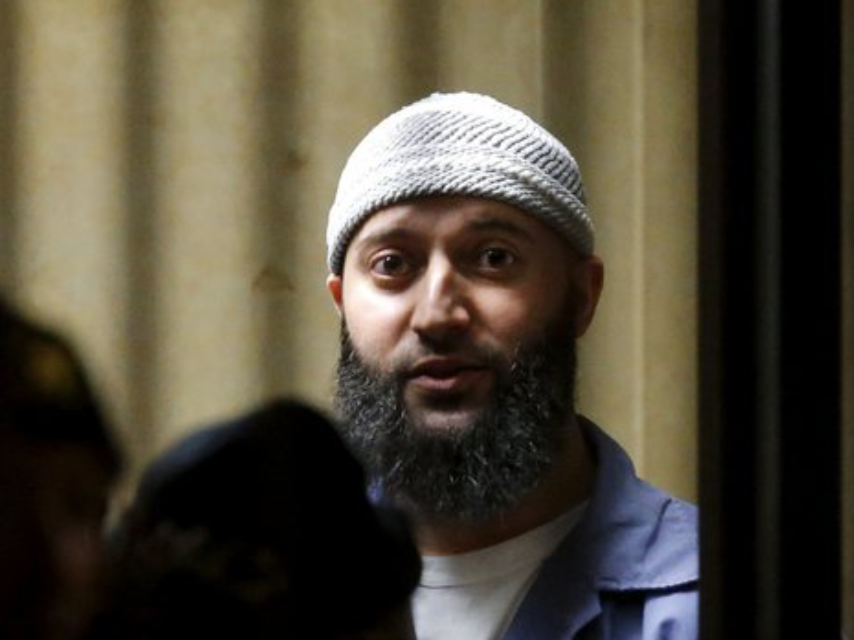Because Syed has proven the performance and prejudice prongs of the Strickland test, we conclude that his claim of ineffective assistance of counsel has been established. Accordingly, Syed’s murder conviction must be vacated, and because Syed’s convictions for kidnapping, robbery, and false imprisonment are predicated on his commission of Hae’s murder, these convictions must be vacated as well. The instant case will be remanded for a new trial on all charges against Syed.
With that, I swear I can almost hear the collective exhale from the legions of Adnan Syed’s supporters. As I’ve disclosed before, I’m not a neutral observer in all of this. I’m a criminal defense attorney who has practiced in the area of post conviction law in Maryland for the past decade. Despite the current public interest in wrongful convictions resulting from ineffective assistance of counsel or actual innocence, this result is not the norm, not even close. The odds are against every defendant raising an ineffective assistance of counsel claim. Far more cases are lost than won. To be clear, based on my experience in the trenches, what Justin Brown and his team have accomplished is nothing short of a miracle.
So what happened? What exactly did the Court decide and what happens next? I’m going to do this post in parts.
Steve Klepper posted a detailed breakdown of the potential next steps. You can read that here:What’s Next
The bottom line is that there is likely a long way to go with this case. The State has 30 days to file a Motion to Reconsider with the Court of Special Appeals (CSA). If the State files a Motion to Reconsider, this will stay (pause) the 45 day deadline to file a Petition for Writ of Certiorari. The State has about 45 days from the date of the decision to file a Petition for Writ of Certiorari with the Court of Appeals. The Court of Appeals, Maryland’s highest court, is not required to hear this case. I think there is a strong possibility that, if the State files, the Court of Appeals will take the case. I’ll discuss that further in a separate post, but first-what exactly happened?
The Big Picture:
Recall, the post conviction court granted a new trial based on ineffective assistance of trial counsel for failing to properly challenge the reliability of the cell tower location evidence. The post conviction court found that trial counsel rendered deficient performance for failing to investigate the alibi claim, but that Syed failed to demonstrate that, but for this error, there was a substantial possibility that the result would have been different. In other words, trial counsel made a mistake, but that mistake was not significant enough to prove that the jury would have either acquitted Syed or failed to reach a unanimous guilty verdict. The CSA reversed the post conviction court on both issues. The CSA reversed the post conviction court’s grant of relief based on the cell phone issue based on waiver. This is a procedural issue. Essentially the CSA found that Syed waived this claim because he could have, but failed to raise the issue during his initial post conviction proceeding. Given that the fax cover sheet, which indicated that incoming calls weren’t reliable for location, was previously in possession of post conviction counsel, the Court found that Syed could have raised the issue previously. Waiver is a complicated concept, but it’s important to understand that the Court substitutes post conviction counsel for Syed in this analysis. In other words, the Court is not really asking whether Syed himself could have been aware of the cover sheet and grasped its import, they’re actually analyzing whether post conviction counsel was.
The CSA likewise reversed the post conviction court on its prejudice finding on the alibi issue. The CSA agreed that trial counsel rendered deficient assistance for failing to investigate the alibi claim, but disagreed with the post conviction court’s analysis of prejudice on this issue. The CSA found that there was a substantial possibility that the result of the trial would have been different if the jury heard Asia McClain’s testimony. In her dissent, Judge Graeff disagreed with the majority’s findings and concluded that Syed failed to demonstrate that trial counsel’s failure to investigate was deficient performance. Because Judge Graeff concluded that Syed failed to establish that trial counsel made a mistake, the analysis stops there. The second prong of Strickland, whether the mistake creates a substantial possibility that the result would be different, is never reached. That there is a dissent in this case, increases the odds that the Court of Appeals may take the case if the State files. I’ll discuss the alibi issue in my next post.

